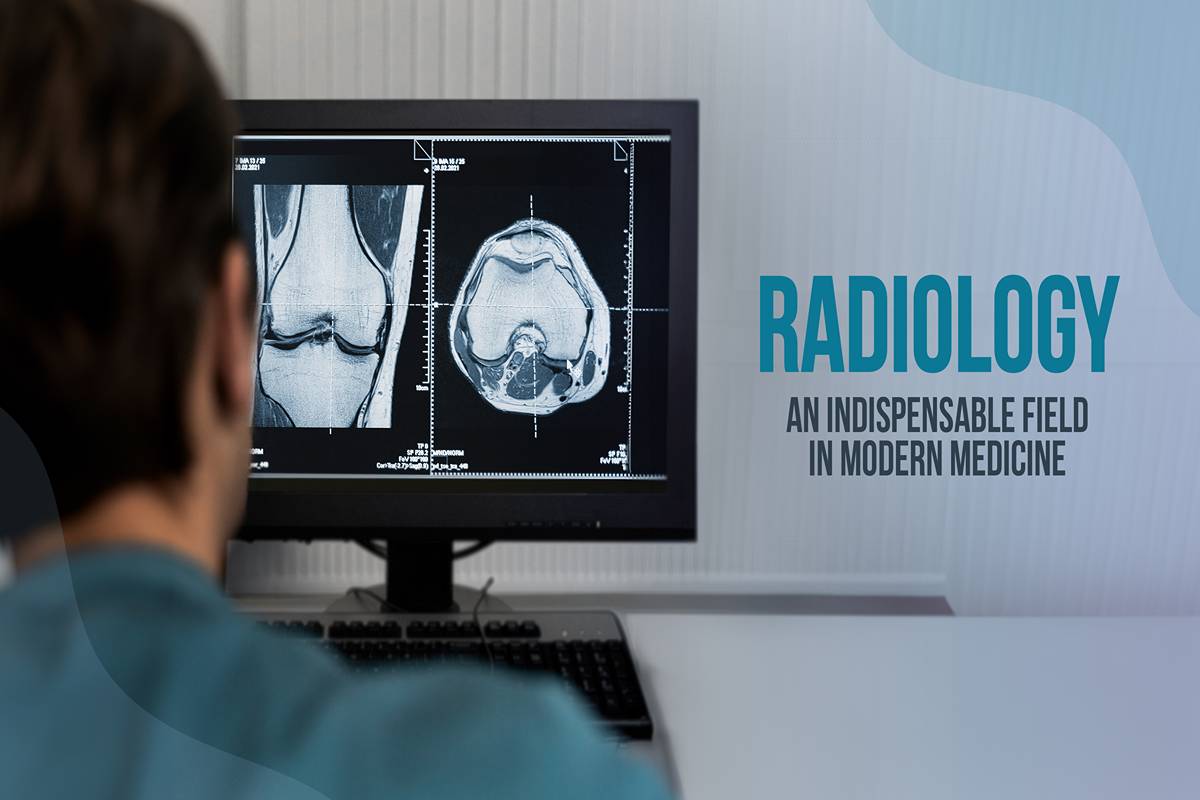
Radiology - An Irreplaceable Field of Modern Medicine
Imagine you’re suffering from a toothache – the dentist doesn’t notice anything with a superficial examination, so you can’t begin treatment. Or perhaps you’ve been dealing with stomach issues for a long time, but the superficial tests still don’t reveal anything to the doctor – indeed, in many cases, it would be difficult for medical professionals to make a diagnosis just from superficial observation and understanding of symptoms.
Moreover, modern medicine could not exist without accurate diagnostics. This is where radiology comes in – a field of medicine that allows us to see what is invisible to the eye. Radiology is one of the most important branches of medical diagnostics, involving the study of a patient’s internal structures through imaging.
Correct and timely diagnosis is often crucial in saving a person’s life. Radiology helps detect diseases that are still in their early stages and show no obvious symptoms. This is particularly important in the case of cancer, vascular pathologies, and various internal organ injuries.
Magnetic Resonance Imaging (MRI) - A Comprehensive Examination of the Body
Magnetic Resonance Imaging (MRI) is one of the most informative methods in radiology. It uses magnetic fields and radio waves to create detailed images of the body’s internal structures. MRI is particularly effective for examining soft tissues such as the brain, spinal cord, joints, muscles, and internal organs.
MRI is used to detect many pathologies, including neurological disorders, oncological diseases, joint and cartilage tissue damage. It should be noted that MRI procedures do not use ionizing radiation, making it a relatively safe method.
Ultrasonography - Non-invasive and Effective Examination
Ultrasonography is another important method in radiology that visualizes the body’s internal structures using ultrasonic waves. This method is non-invasive, painless, and does not involve radiation exposure.
Ultrasonography is widely used to examine abdominal organs, the thyroid gland, mammary glands, blood vessels, and to monitor fetal development during pregnancy. The simplicity and safety of the procedure make ultrasonography the best diagnostic tool for many clinical cases.
The Role and Importance of a Radiologist
A radiologist is a specialist who not only conducts the tests but also interprets the resulting images and provides a conclusion to the treating physician. The best radiologist is one who is proficient in modern technology and, at the same time, has extensive clinical experience.
A top radiologist should be not only a professional in their field but also able to communicate effectively with patients. A qualified radiologist is irreplaceable in the diagnostic process because the accuracy of test results depends entirely on their professionalism.
Modern radiology is rapidly evolving. The integration of artificial intelligence, three-dimensional imaging, and molecular visualization techniques are becoming increasingly common in clinical practice. These innovative technologies allow us to detect pathologies in more detail and at earlier stages. Focusing on continuous development in this field is an essential trait of a radiologist.
Equally important is the clinic where the specialist works. They may have the highest level of education… but if the clinic lacks the necessary modern technology… the radiologist’s knowledge and experience alone won’t be enough to make an accurate diagnosis. That’s why radiologist recruitment and staffing expertise plays a critical role in ensuring clinics are paired with both cutting-edge equipment and the right talent—learn more about how specialized recruiters and agencies bridge this gap.
How to Choose the Best Radiologist?
You should pay attention to the specialist’s education, experience, the clinic they work at, and, of course, patient reviews. The best radiologist is a professional who continuously develops and keeps up with the latest achievements in the field.
Why Shouldn’t We Hesitate to Perform the Examination?
Timely and high-quality radiological examinations are often the key to successful treatment. A radiologist who uses modern equipment and has the necessary knowledge ensures an accurate diagnosis, which directly impacts the treatment outcomes.
Remember, selecting the best radiologist is just as important as the examination itself. Don’t forget that preventive screenings and timely diagnostics are the best ways to prevent severe diseases and maintain your quality of life.

Comments (0)